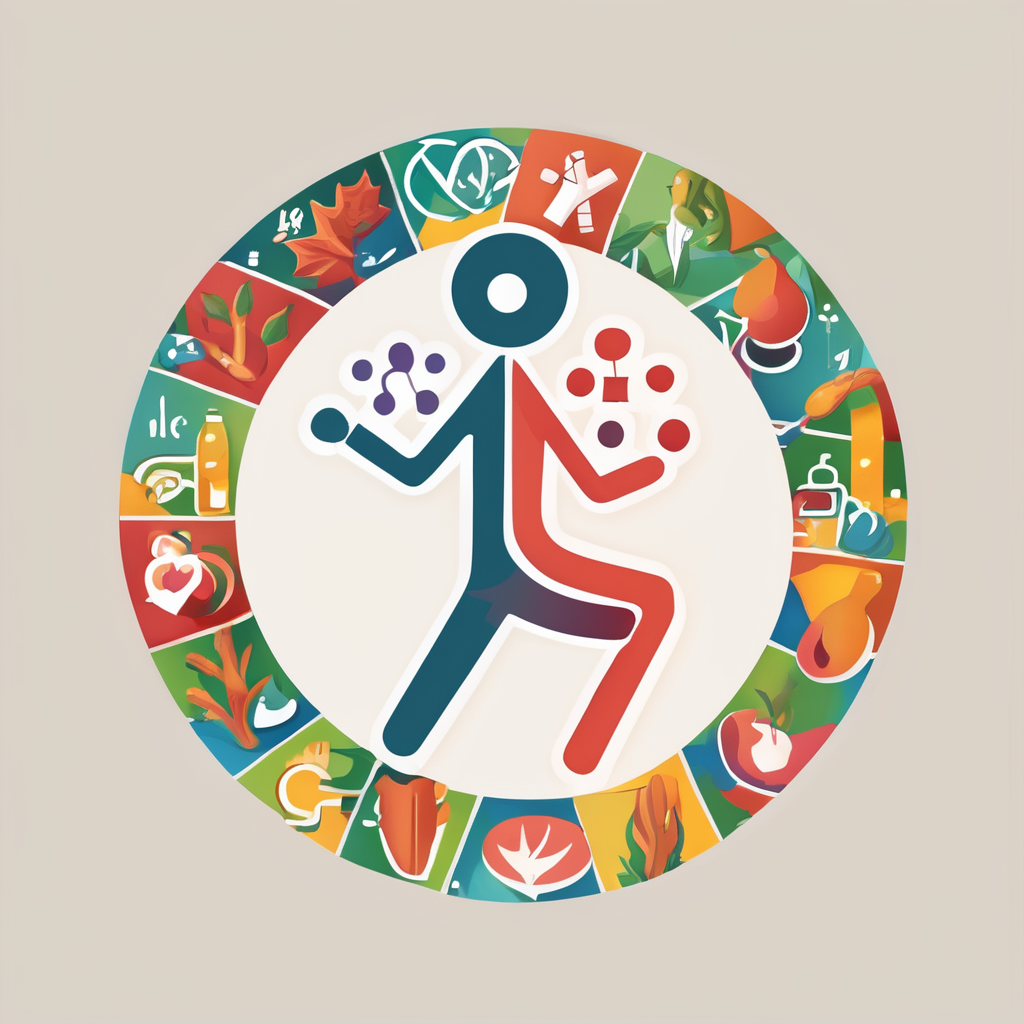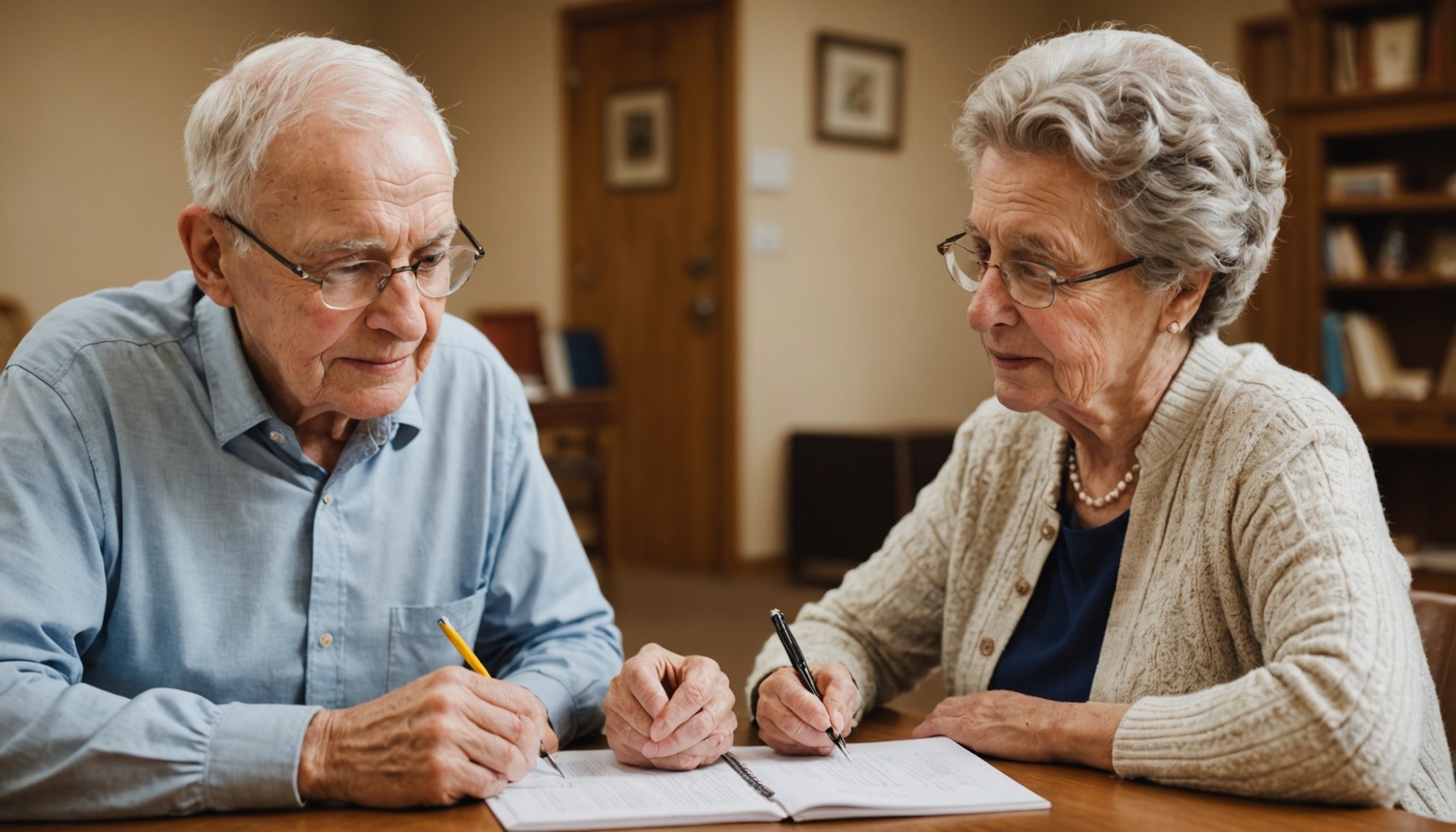Enhancing Memory in Seniors: Effective Strategies for Better Retention
As we age, maintaining a sharp memory and robust cognitive function becomes increasingly important for leading an independent and fulfilling life. For older adults, the prospect of memory loss can be daunting, especially with the rise of dementia and other cognitive impairments. However, there are several effective strategies that can help enhance memory and support brain health in seniors.
Understanding Memory Loss in Older Adults
Memory loss is a common concern among older adults, and it can manifest in various ways. For people living with dementia, such as Alzheimer’s disease, memory loss is a significant symptom that affects daily life. According to the Alzheimer’s Society, memory problems in dementia can include forgetting recent conversations or events, struggling to find the right words, and getting lost in familiar surroundings.
Additional reading : Recognizing Overtraining: Key Symptoms Athletes Must Know and Tips to Prevent It
“Dementia is caused by damage to the brain, and this damage can affect areas of the brain involved in creating and retrieving memories,” explains a scholar from the Alzheimer’s Society. This damage can lead to difficulties in creating new memories, taking longer to retrieve information, and sometimes being unable to retrieve information at all.
The Role of Reminders in Memory Enhancement
One of the simplest yet most effective strategies for enhancing memory in older adults is the use of reminders. A recent study from the University of Texas at Arlington highlights the significance of reminders in mitigating age-related declines in memory. The study found that reminders can eliminate some of the cognitive strain associated with prospective memory, which is the ability to remember to perform intended actions at the right moment.
Also to read : Top Strategies for Effectively Preventing Sports Injuries: A Comprehensive Guide
“Reminders can help reduce cognitive strain by making memory retrieval less reliant on internal memory processes,” says Hunter Ball, associate professor of psychology at UTA. This is particularly useful for tasks such as taking medication or attending appointments, which are crucial for daily living and maintaining independence.
Here are some practical ways to use reminders:
- Digital Tools: Use smartphone apps, personal assistants like Amazon Alexa, or calendar reminders to set alerts for important tasks.
- Physical Reminders: Place sticky notes in strategic locations or use a planner to keep track of appointments and tasks.
- Routine: Establish a daily routine that includes regular checks for reminders, such as checking your phone or planner at the same time each day.
The Connection Between Sleep and Memory
Sleep is a critical component of brain health and memory. Research has shown that good sleep is essential for memory consolidation and retrieval. During sleep, especially in the deeper stages, the brain processes and stores new information, making it easier to recall later.
“Restorative sleep is key to our physical and cognitive health,” notes Dorothea Vafiadis, Senior Director of NCOA’s Center for Healthy Aging. “When we’re sleep-deprived, our memories can’t perform as well as they should.”
Here are some tips for improving sleep hygiene:
- Regular Sleep Schedule: Go to bed and wake up at the same time each day.
- Bedroom Environment: Reserve your bedroom for sleep and keep it comfortable and quiet.
- Avoid Screen Time Before Bed: Reduce exposure to blue light from digital devices.
- Evening Routine: Engage in calming activities like reading or listening to music before bed.
- Address Sleep Disruptions: Manage issues like sleep apnea, chronic pain, and menopause symptoms to improve sleep quality.
Cognitive Stimulation and Learning
Engaging in activities that challenge the brain is another effective way to enhance memory in older adults. Cognitive stimulation can help build cognitive reserve, which is the brain’s ability to adapt and compensate for age-related changes or brain pathology.
“Activities that challenge the brain can help maintain and improve memory,” advises a scholar. Here are some examples of cognitive stimulation:
- Puzzles and Games: Engage in activities like crosswords, Sudoku, and chess.
- Learning New Skills: Take up a new hobby or learn a new language.
- Reading and Writing: Read books, write journals, or even try creative writing.
- Social Engagement: Participate in group activities or join clubs that interest you.
Physical Exercise and Brain Health
Physical exercise is not only beneficial for the body but also has a positive impact on brain health and memory. Regular physical activity has been shown to improve cognitive function and reduce the risk of cognitive decline.
“Physical exercise promotes blood flow to the brain and supports the health of brain cells,” explains a health expert. Here are some ways to incorporate physical exercise into your routine:
- Aerobic Exercise: Engage in activities like walking, cycling, or swimming.
- Strength Training: Incorporate weightlifting or resistance band exercises.
- Flexibility and Balance: Practice yoga or tai chi to improve flexibility and balance.
- Outdoor Activities: Spend time outdoors by gardening or taking short walks.
Memory Supplements and Nutrition
While there is no magic pill to prevent or reverse age-related memory changes, certain supplements and nutritional practices can offer additional support. However, it is crucial to approach these with caution and consult with a healthcare provider.
“Before starting any memory supplement, it is advisable for seniors to consult with their healthcare provider to assess the potential risks and benefits,” advises a healthcare expert.
Here are some popular memory supplements and their potential benefits:
| Supplement | Potential Benefits | Considerations |
|---|---|---|
| Ginkgo Biloba | Improves blood flow to the brain, acts as an antioxidant | Mixed evidence on effectiveness; potential interactions with medications |
| Omega-3 Fatty Acids | Supports brain cell structure, promotes communication between brain cells | Essential for brain health; further research needed to fully understand benefits |
| B Vitamins | Involved in brain function and metabolism | Important for overall health; ensure adequate intake through diet or supplements |
Practical Tips for Supporting Someone with Memory Loss
For people living with dementia or significant memory loss, support from family and friends is crucial. Here are some practical tips for supporting someone with memory problems:
- Create a Safe Environment: Remove tripping hazards and ensure the home is easy to navigate.
- Use Memory Aids: Utilize calendars, reminders, and labels to help them remember important information.
- Encourage Independence: Support them in performing tasks they can still manage, but be ready to assist when needed.
- Communicate Effectively: Use clear and simple language, and avoid arguing or correcting them.
- Emotional Support: Recognize and validate their feelings, and provide emotional comfort.
Enhancing memory in seniors is a multifaceted approach that involves a combination of lifestyle changes, cognitive stimulation, and practical strategies. By understanding the impact of sleep, exercise, and cognitive activities on brain health, older adults can take proactive steps to improve their memory and overall well-being.
As Dorothea Vafiadis notes, “When we understand the direct relationship between memory and sleep, we can take charge of improving both.” By incorporating these strategies into daily life, seniors can maintain their independence, stay engaged with their surroundings, and lead more fulfilling lives.
In the words of Hunter Ball, “This new study demonstrates that cognitive offloading, specifically using reminders like cell phone calendars, can effectively mitigate these declines.” Whether through reminders, sleep hygiene, cognitive stimulation, or physical exercise, there are numerous ways to support brain health and enhance memory in older adults.
By prioritizing these strategies and seeking help when needed, seniors and their families can navigate the challenges of aging with greater ease and confidence.











